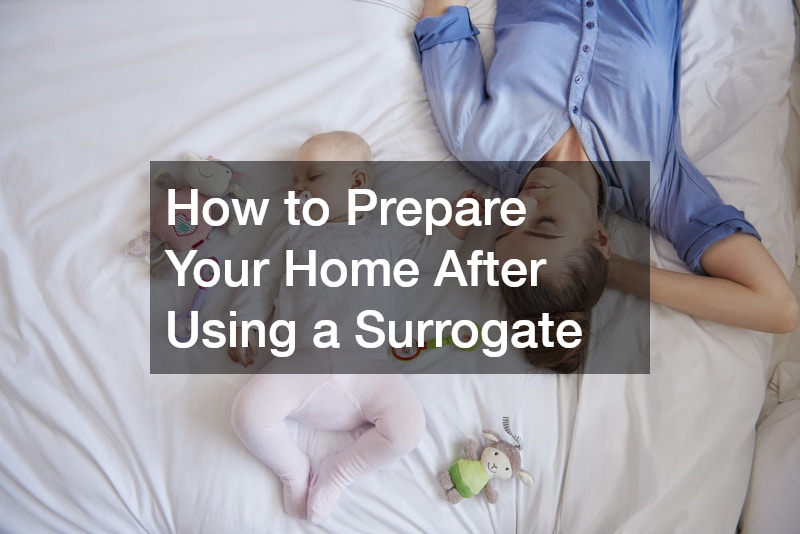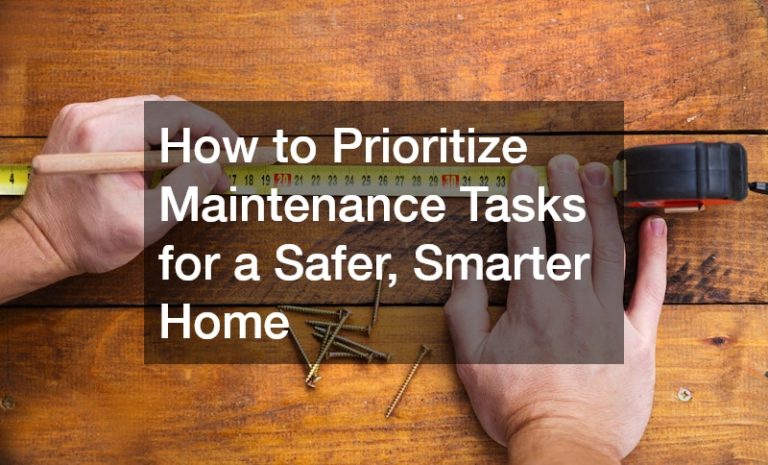

Bringing a baby home is an exciting and life-changing event, and if you’ve grown your family through surrogacy, the experience is even more unique. While you may have spent months coordinating with your surrogate, ensuring legal and medical processes are in place, and emotionally preparing for parenthood, getting your home ready is an essential final step. According to Elevate Baby, the entire surrogate process can take 12 to 13 months, meaning you have ample time to create a safe and welcoming space for your child. Here’s how to ensure your home is fully prepared for your new arrival.
1. Create a Safe and Comfortable Nursery
Setting up a nursery is one of the most exciting parts of preparing for your baby. Choose a quiet room with plenty of natural light and space for essentials.
Your nursery should include:
A crib that meets current safety standards
A comfortable changing station with organized supplies
A rocking chair or glider for feeding and soothing
Soft lighting and blackout curtains for restful sleep
Beyond furniture, baby-proof the room by securing cords, covering electrical outlets, and avoiding heavy objects that could fall.
2. Stock Up on Baby Essentials
Once your surrogate is in the later stages of pregnancy, it’s time to ensure you have everything your baby will need in the first few months. Stock up on:
Newborn diapers and wipes
Bottles and formula (if not breastfeeding)
Baby clothes in various sizes
A car seat (installed and tested before your baby’s arrival)
Swaddles, blankets, and burp cloths
Having these items ready will make the transition smoother and eliminate last-minute stress.
3. Deep Clean and Sanitize Your Home
A newborn’s immune system is delicate, so it’s important to clean your home thoroughly before their arrival. Focus on:
Disinfecting commonly touched surfaces, such as doorknobs and countertops
Washing baby clothes, bedding, and plush toys in fragrance-free detergent
Vacuuming and dusting to remove allergens
Ensuring the kitchen is sanitized if you plan on preparing bottles
Maintaining a clean and healthy environment will give you peace of mind as you welcome your little one home.
4. Baby-Proof Your Living Spaces
While newborns won’t be crawling right away, baby-proofing early can prevent future hazards. Consider:
Installing safety gates for stairways
Locking cabinets with cleaning supplies or medications
Securing heavy furniture and TVs to the wall
Using corner protectors on sharp edges
This preparation ensures your home remains safe as your baby grows.
5. Set Up a Feeding and Changing Station
Having a designated area for feeding and diaper changes in main living spaces can make life easier. Keep a basket stocked with:
Diapers and wipes
Extra onesies
Burp cloths and bibs
A bottle warmer or nursing pillow
This setup minimizes disruptions and allows you to focus on bonding with your baby.
6. Arrange Postpartum Support and Childcare
Surrogacy often involves travel, and if you’re returning home with a newborn, you may need extra support. Consider hiring a postpartum doula or asking a trusted family member to help in the first few weeks. If you have older children, arrange childcare in advance to ease the transition.
7. Prepare for Medical Visits
Your baby will need pediatrician visits soon after coming home. Research and choose a pediatrician ahead of time, ensuring they align with your parenting preferences. Have a baby medical kit ready with:
A thermometer
Infant pain relievers (as recommended by your doctor)
Nail clippers
A nasal aspirator
Being prepared for common infant concerns can make those first few weeks less overwhelming.
8. Establish a Routine
Newborns thrive on routine, even if their sleep schedule is unpredictable at first. Creating a calm bedtime routine with dim lighting, gentle rocking, and soft lullabies can help your baby adjust. Keep feeding times consistent and allow for plenty of skin-to-skin bonding.
9. Manage Visitors and Boundaries
Family and friends will be eager to meet your baby, but it’s important to set boundaries. Consider implementing:
A waiting period before visitors can come over
Handwashing rules for anyone holding the baby
Limits on large gatherings to reduce germ exposure
Clear communication about your comfort level will prevent stress and help protect your baby’s health.
Watch the video above to learn more about the surrogate mother cost and preparing your home for your new baby! .


